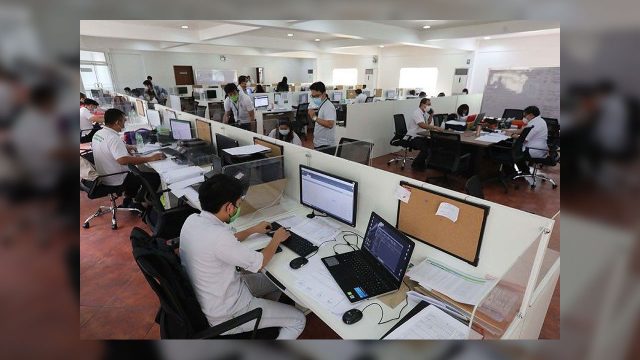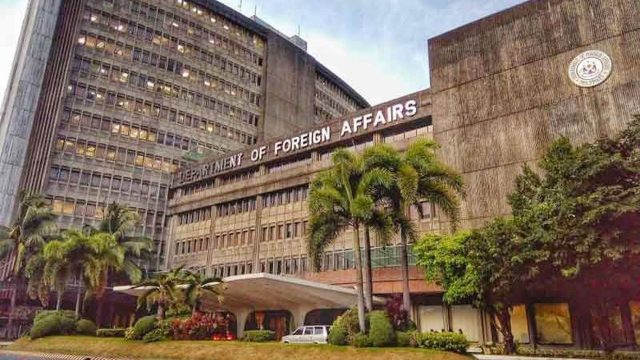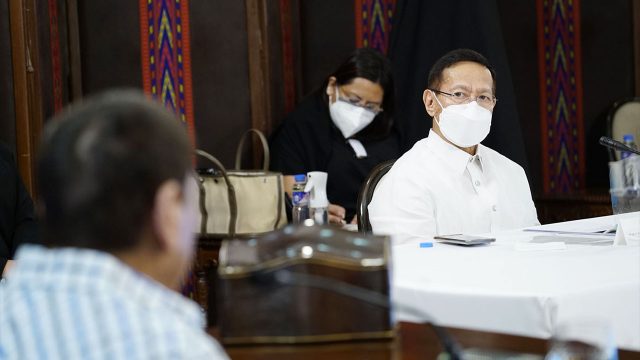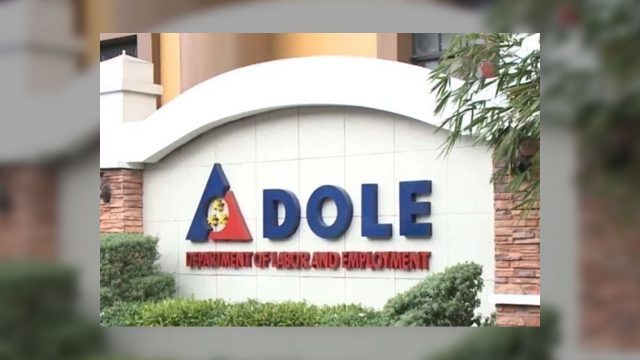An outstanding feature of the Revised Corporation Code of the Philippines (RCCP) is the formal institution within its corporate governance (CG) framework of “corporation whose business is vested with public interests.”
Section 22 of the RCCP provides that the Board of Directors of the “following corporations vested with public interest shall have independent directors constituting at least 20% of such board”:
a.) Corporations Covered by the Securities Regulation Code: Registered Issuers (RIs), which are corporations whose securities are registered with the Securities and Exchange Commission (SEC); Publicly Listed Companies (PLCs), which are corporations which are listed in the Exchange; and, Public Companies (PCs), which are corporation with assets of at least P50 million and having 200 or more shareholders, each holding at least 100 shares of any class of shares, which shall hereinafter be collectively referred to as “publicly held companies”;
b.) All Corporate Financial Intermediaries including banks and quasi-banks, nonstock savings and loans associations (NSSLAs), preneed, trust and insurance companies, corporations engaged in money service business, and pawnshops;
c.) Other Corporations Engaged in Business Vested with Public Interest: Those similar to the above, as may be determined by the SEC, taking into account relevant factors germane to the purpose of requiring the election of an independent director, such as: extent of minority equity ownership, type of financial products or securities issued or offered to investors, public interests involved in the nature of business operations, and other analogous factors.
Aside from requiring the inclusion of independent directors in their Board of Directors under Section 22, the RCCP provides for the following separate requirements for corporations vested with public interests:
a.) Section 23: In the election of directors or trustees, the shareholders or members of corporations vested with public interest are entitled to also vote through remote communications or in absentia, even when nothing is provided for in the bylaws;
b.) Section 24: The Compliance Officer is a statutory officer for corporations vested with public interests;
c.) Section 29: Corporations vested with public interest shall submit to their shareholders or members and the SEC an annual report of the total compensation of each of their directors or trustees;
d.) Section 31: Material related party transactions (RPT) in the case of a corporation vested with public interest must in addition be: (i) approved by at least two-thirds of the entire membership of the Board, (ii) with at least a majority of the independent directors voting to approve the material RPT;
e.) Section 91: In the case of nonstock corporations vested with public interest, even non-members may be elected as independent trustee;
f.) Section 95: Corporations vested with public interest cannot be incorporated as a close corporation; and,
g.) Section 177: In addition to the annual submission to the SEC of the Audited Financial Statements and the GIS, corporations vested with public interest must also submit: (i) a director or trustee compensation report; and, (ii) a director or trustee appraisal or performance report and the standards or criteria used to assess each director or trustee.
The formal recognition under the RCCP of “corporations whose business enterprise is vested with public interests” as an integral part of formally embodying CG principles and best practices amounts to formal invoking into Philippine Corporate Law of the Stakeholder Theory as an important adjunct to the doctrine of Maximization of Shareholder Value.
In addition, recognizing the special class of “corporations whose business enterprise is vested with public interests” would legally imply invoking into the relevant provisions of the RCCP, the jurisprudence evolved by the Supreme Court on the fiduciary duty of diligence imposed upon corporations, their Board of Directors and Management, whose business enterprise are vested with public interests.
THE SYSTEM OF INDEPENDENT DIRECTORS
It must be noted that the system of independent directors (IDs) did not exist under the set-up of the old Corporation Code, where the main legal mechanism provided to allow representation of minority shareholders was the system of cumulative voting. The system of IDs was first introduced into the sector of publicly held companies by the Securities Regulation Code, to ensure that all holders of securities, both debt and equity, and other affected stakeholders, are properly represented by IDs who are expected to exercise “independent judgment” from the other regular directors whose primary fiduciary duty related exclusively to the shareholders of record who elect them into office.
The system of IDs therefore is in recognition of the stakeholder theory, that it is within the fiduciary duty of Boards of Directors of companies whose business enterprise affects the public, to consider not only the interests of the shareholders, but also those of other stakeholders. It should be noted that the aspect of the stakeholder theory that imposes a fiduciary duty on directors or trustees and executive officers to include stakeholders other than just the shareholders, tended to have limited application under the Securities Regulation Code to include investors in either debt or equity securities of the publicly held companies; it does not recognize a fiduciary duty of directors or trustees and executive officers to non-investing stakeholders, such as creditors, suppliers, customers, etc.
This limited adaption of the stakeholder theory only with respect to investors in securities of publicly held companies is understandable because the basic purpose of the Securities Regulation Code is to provide rules and regulations for the public offering of securities. As discussed hereunder, the expansion of the stakeholder theory to include non-investing stakeholders evolved in jurisprudence of the Supreme Court ruling on the fiduciary nature of the obligations of corporations vested with public interest.
It is not surprising therefore that under the CG Code for PLCs, which embodies Principle 5 — “The Board should endeavor to exercise objective and independent judgment on all corporate affairs” — the fiduciary duty to exercise independent judgment is owed to all shareholders, taking into consideration the interests of minority shareholders, and is not to be exercised taking into consideration other stakeholders.
It is to be noted that the system of IDs under Recommendation 5.1 — “The Board should have at least three independent directors, or such number as to constitute at least one-third of the members of the Board, whichever is higher” — is explained in terms of oversight of managerial performance, prevention of conflict of interests, and balancing of competing demands of the corporation, including the “increasing global recognition that more independent directors in the Board lead to more objective decision-making, particularly in conflict of interests situations.” Fiduciary duties relating to conflict-of-interest situations are meant to protect the proprietary interests of minority shareholders against the rapacious tendency of the majority members of the Board to partake for their benefit or those of the majority shareholders corporate opportunities.
The most critical issue is the standing of stakeholders other than shareholders to demand any fiduciary duty on the part of the Board of Directors and Management to their interests in the business enterprise of the company: Do directors or trustees and executive officers of the company owe any fiduciary duty to stakeholders other than shareholders?
Principle 2 of the CG Code for PLCs, under the heading of Establishing Clear Roles and Responsibilities of the Board, mandates that “The fiduciary roles, responsibilities and accountabilities of the Board as provided under the law, the company’s articles and by-laws, and other legal pronouncements and guidelines should be clearly made known to all directors as well as to shareholders and other stakeholders.” The essence of Principle 2 is not recognizing a fiduciary duty to stakeholders other than shareholders, but more on the obligation to “make known” to stakeholders what fiduciary roles, responsibilities and accountability the Board may owe to them under the law, articles and bylaws — it actually begs the question of what are the fiduciary duties of the Board and Management to stakeholders other than shareholders.
In fact, the Explanation to Recommendation 2.1 — “The Board members should act on a fully informed basis, in good faith, with due diligence and care, and in the best interest of the company and all shareholders” — only recognizes that the common-law duties of diligence and loyalty are owed to shareholders, and enjoins that “The duty of loyalty is also of central import; the board member should act in the interest of the company and all its shareholders, and not those of the controlling company of the group or any other stakeholder.”
In fact, Principle 14 does not recognize any inherent fiduciary duty of directors or executive officers to stakeholders, and the only rights recognized as pertaining to stakeholders other than shareholders are those rights granted by law, by contractual relations, and through voluntary commitments by the Board of Directors, thus: “The rights of stakeholders established by law, by contractual relations and through voluntary commitments must be respected. Where stakeholders’ rights and/or interests are at stake, stakeholders should have the opportunity to obtain prompt effective redress for the violation of their rights.”
The Explanation to Recommendation 14.1 — “The Board should identify the company’s various stakeholders and promote cooperation between them and the company in creating wealth, growth and sustainability” — recognizes that the stakeholders “in corporate governance include, but are not limited to, customers, employees, suppliers, shareholders, investors, creditors, the community the company operates in, society, the government, regulators, competitors, external auditors, etc.” The Explanation then enjoins that “In formulating the company’s strategic and operational decisions affecting its wealth, growth and sustainability, due consideration is given to those who have an interest in the company and are directly affected by its operations.”
Therefore, no common-law fiduciary duty is owed by Board of Directors and Management to stakeholders other than shareholders other than “due consideration is given to those who … are directly affected by its operations.
Section 22 of the RCCP defines an “independent director” as “a person who, apart from shareholdings and fees received from the corporation, is independent of management and free from any business or other relationship which could, or could reasonably be perceived to materially interfere with the exercise of independent judgment in carrying out the responsibilities as a director.” The definition of an ID is one who is unlikely to be involved in a conflict-of-interest situation. In fact, if you review all the special provisions of the RCCP provides for corporations vested with public interest for which at least 20% of the Board membership must be independent directors, they only involve complying with the duty of loyalty on the aspect of conflict-of-interest situations as it relates to the interest of shareholders.
Textually therefore, the RCCP has not recognized any fiduciary duty that is owed by directors or trustees and executive officers to stakeholders other than shareholders. The body of law creating fiduciary duties of corporations vested with public interests, their Board of Directors and Management, to stakeholders other than shareholders can be found both under the Constitution and the decisions of the Supreme Court.
This article reflects the personal opinion of the author and does not reflect the official stand of the Management Association of the Philippines or the MAP.
Attorney Cesar L. Villanueva is Chair of the MAP Corporate Governance Committee, is a Trustee of the Institute of Corporate Directors (ICD), was the first Chair of Governance Commission for GOCCs (2011 to 2016), was Dean of the Ateneo Law School (2004 to 2011), and is a Founding Partner of the Villanueva Gabionza & Dy Law Offices.
map@map.org.ph
cvillanueva@vgslaw.com
http://map.org.ph












